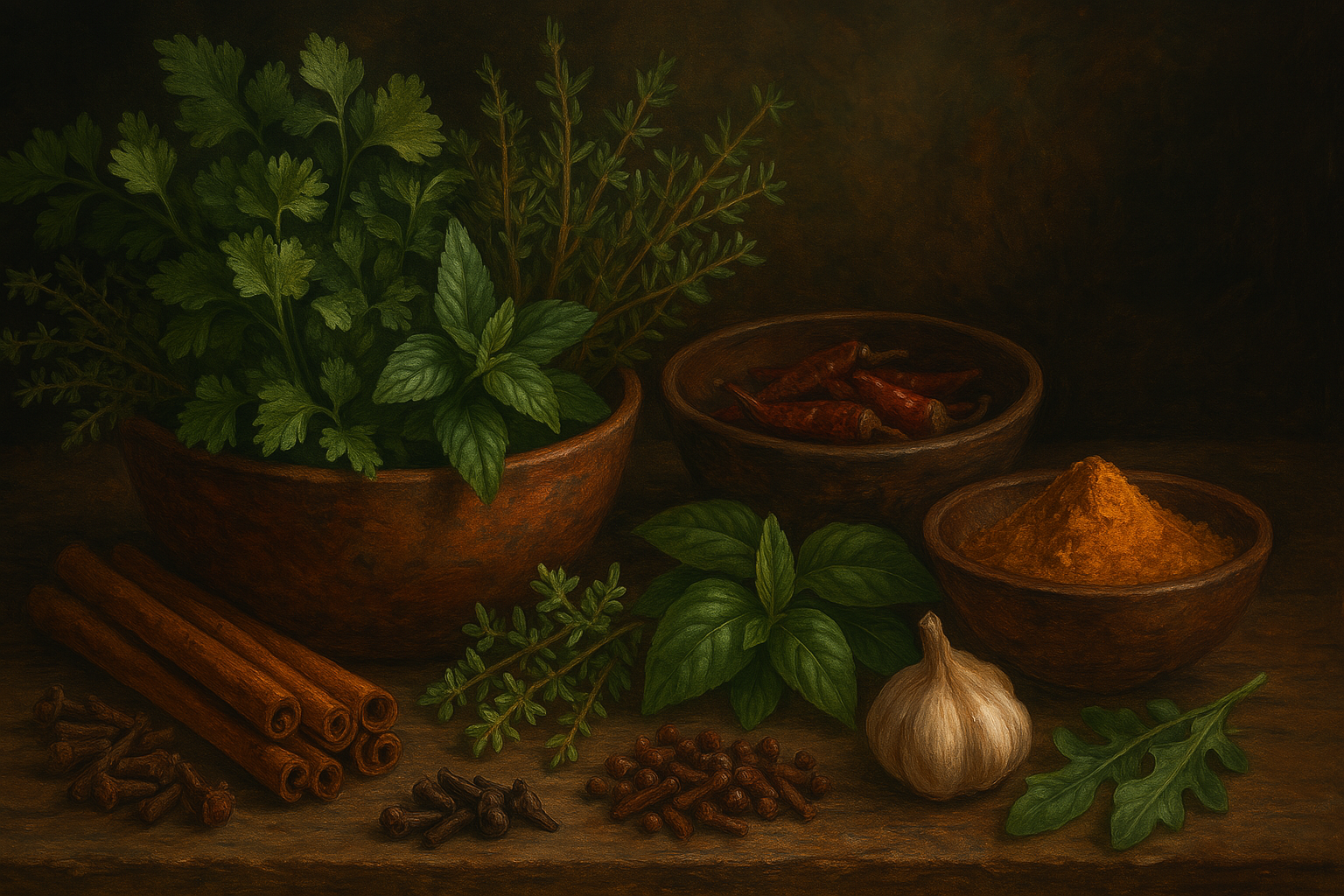Across Africa, kitchens have long doubled as apothecaries—where food and medicine come from the same shelf. Passed down through generations, the use of healing herbs and spices in African households forms a rich tapestry of wellness traditions grounded in nature, culture, and ancestral wisdom.
These herbs and spices are more than flavor enhancers—they’re remedies for the body, spirit, and soul, offering natural treatments for everything from colds to chronic inflammation.
Here’s a look at the most revered healing plants, roots, and spices found in African homes—and why they deserve a place in yours.
🌿 1. Moringa – The Miracle Leaf
Used in West, East, and Central Africa, moringa leaves are a powerhouse of nutrients.
Health Benefits:
Rich in iron, calcium, and vitamin A
Boosts energy and immune system
Supports blood sugar regulation
Used in: Soups, stews, teas, and dried powders
🍂 2. Neem (Dogonyaro) – The Detox Master
Popular in Nigeria and East Africa, neem leaves are known for their antiviral, antibacterial, and antifungal properties.
Health Benefits:
Detoxifies the blood and liver
Fights skin infections and parasites
Boosts immunity
Used in: Herbal teas, steam therapy, or topical paste
🫚 3. Ginger – The Heat Healer
A root used in nearly every African region, ginger is a go-to for warming the body and clearing congestion.
Health Benefits:
Relieves nausea and cold symptoms
Anti-inflammatory and antimicrobial
Improves digestion
Used in: Teas, juices, and spice rubs for meat
🧄 4. Garlic – The Immune Booster
Crushed and infused in everything from stews to healing tonics, garlic is a trusted household remedy.
Health Benefits:
Lowers blood pressure and cholesterol
Combats infections
Acts as a natural antibiotic
Used in: Cooking, herbal tonics, and raw blends
🌺 5. Hibiscus (Zobo/Bissap) – The Heart Tonic
Known as Zobo in Nigeria and Bissap in Senegal, hibiscus is a beautiful and powerful flower.
Health Benefits:
Lowers blood pressure
High in vitamin C and antioxidants
Aids digestion and detox
Used in: Chilled herbal drinks, teas, and infusions
🌿 6. African Basil (Efirin) – The Respiratory Remedy
This aromatic herb is widely used in West Africa, especially in Nigeria.
Health Benefits:
Clears respiratory congestion
Treats coughs and colds
Reduces stress and anxiety
Used in: Soups, teas, and steam inhalation
🌱 7. Turmeric – The Golden Root
Used in North and East African dishes, turmeric is an ancient remedy with a golden glow.
Health Benefits:
Powerful anti-inflammatory
Supports joint and liver health
Natural pain reliever
Used in: Spice blends, herbal milk, and teas
🌰 8. Cloves – The Toothache Fighter
Highly fragrant and medicinal, cloves are a staple in East African coastal cuisine and healing.
Health Benefits:
Numbs pain (especially for toothaches)
Antibacterial and anti-parasitic
Improves digestion
Used in: Chewed raw, brewed in tea, or added to food
🌿 9. Cinnamon – The Blood Sugar Balancer
Native to North Africa and widely traded across the continent, cinnamon is warming and medicinal.
Health Benefits:
Helps regulate blood sugar
Stimulates circulation
Fights bacterial infections
Used in: Herbal tea, porridge, and spice blends
🌑 10. Black Seed (Nigella Sativa) – The Ancient Healer
Known in Islamic traditions as the “seed that cures everything but death”, black seed is revered across North and East Africa.
Health Benefits:
Boosts immunity
Relieves asthma and allergies
Supports skin and digestive health
Used in: Oils, seed snacks, and tonics
In African homes, healing herbs and spices are not just health remedies—they are cultural treasures. They connect people to their ancestors, their land, and the intuitive knowledge of natural healing passed down over centuries.
By incorporating these remedies into your wellness routine, you not only support holistic health—you also honor the wisdom of Africa’s traditional healers and herbalists.



